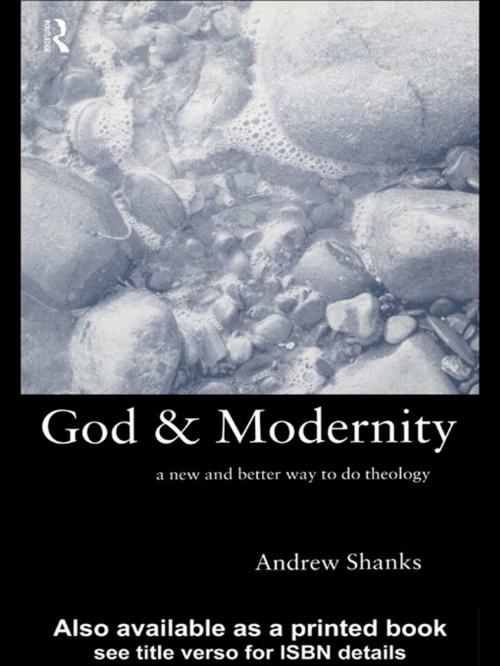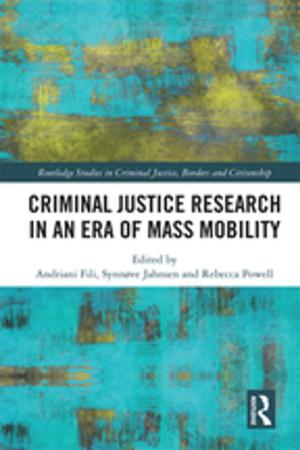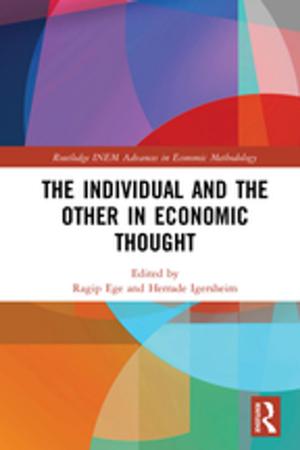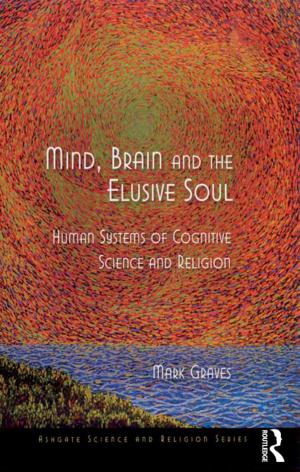| Author: | Andrew Shanks | ISBN: | 9781134737277 |
| Publisher: | Taylor and Francis | Publication: | October 2, 2012 |
| Imprint: | Routledge | Language: | English |
| Author: | Andrew Shanks |
| ISBN: | 9781134737277 |
| Publisher: | Taylor and Francis |
| Publication: | October 2, 2012 |
| Imprint: | Routledge |
| Language: | English |
For the past four hundred years, theological debate has been dominated by a fundamental divide: between the liberals, with strong loyalties to the secularity of the secular state and university on the one hand, and the neo-orthodox, insisting on the absolute priority of a proper loyalty to the church community itself, on the other. God and Modernity strikes off in a fundamentally new directionAndrew Shanks boldly calls for a new and better way to do theology.
Shanks argues that God is most present in a culture where public debate over ethical issues flourishes best. Social movements such as feminist movements, peace movements, and green movements have emerged to challenge both Church and State. These new movements are no longer confined to a particular confessional religious identity and are independent of state sponsorship. These social movements already made an individual impact on theology. What would a theology look like, systematically trying to reconcile older divisions in the theological debate with a new loyalty to such movements common ethos?
Anyone wishing to gain a refreshing insight into a new way of understanding theology and politics will welcome this ground-breaking book.
For the past four hundred years, theological debate has been dominated by a fundamental divide: between the liberals, with strong loyalties to the secularity of the secular state and university on the one hand, and the neo-orthodox, insisting on the absolute priority of a proper loyalty to the church community itself, on the other. God and Modernity strikes off in a fundamentally new directionAndrew Shanks boldly calls for a new and better way to do theology.
Shanks argues that God is most present in a culture where public debate over ethical issues flourishes best. Social movements such as feminist movements, peace movements, and green movements have emerged to challenge both Church and State. These new movements are no longer confined to a particular confessional religious identity and are independent of state sponsorship. These social movements already made an individual impact on theology. What would a theology look like, systematically trying to reconcile older divisions in the theological debate with a new loyalty to such movements common ethos?
Anyone wishing to gain a refreshing insight into a new way of understanding theology and politics will welcome this ground-breaking book.















